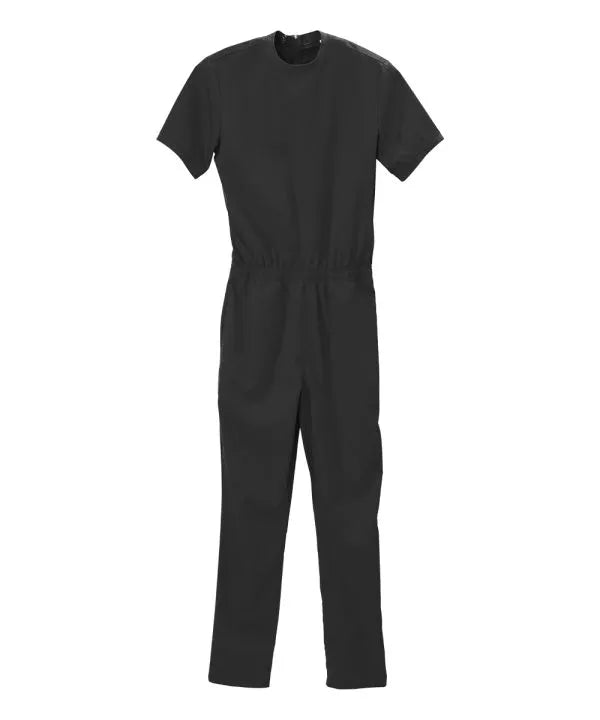Written by Eric Ye & reviewed by Nicole Fernandes
In an ever-changing world, the challenges of aging and cognitive decline have become increasingly prevalent. Among the most profound of these challenges is memory impairment, which affects millions of individuals worldwide, robbing them of their treasured memories and cherished moments. For example, Alzheimer's disease and various forms of dementia pose unique hardships not only for those affected but also for their families and caregivers.
To navigate this intricate landscape and provide the utmost care for our loved ones, memory care emerges as a crucial solution.
What is Memory Care?
Memory care is a specialized form of care designed for individuals with memory impairment, particularly those suffering from Alzheimer's disease and various other forms of dementia. It involves providing tailored support, assistance, and a safe environment to meet the unique needs of individuals experiencing memory-related challenges.
Memory care facilities or units are typically part of assisted living communities or nursing homes, specifically dedicated to serving residents with memory issues. These facilities have staff members who undergo specialized training to understand the complexities of memory-related conditions and develop effective strategies for managing behavioural challenges that may arise.
The primary focus of memory care is to enhance the quality of life for residents and provide them with a sense of purpose and engagement. The facilities offer structured and stimulating activities and therapies that cater to the cognitive abilities and interests of the individuals. These activities may include memory-enhancing games, art therapy, music therapy, and social interactions, among others.
Safety is of paramount importance in memory care. Memory care facilities have secure entrances and exits to prevent wandering, which is a common behaviour among individuals with memory impairment. Staff members provide round-the-clock supervision to ensure the safety and well-being of residents.
Personalized care plans are a central aspect of memory care. Each resident's needs and preferences are carefully assessed, and individualized care plans are developed to address their specific requirements. This approach recognizes the uniqueness of each person and aims to provide the most appropriate level of care and support.
Signs it's Time for Memory Care:
As our loved ones age, it is natural for some memory changes to occur. Occasional forgetfulness or mild cognitive lapses are common as individuals grow older. However, when memory issues escalate and begin to interfere with daily life, it may be a sign that more specialized care is required. Memory care, a specialized form of support for individuals with memory-related challenges, becomes a crucial consideration when certain signs indicate the need for a higher level of assistance. In this essay, we will explore the signs that may signal it's time for memory care and why seeking this level of care is essential for the well-being of the individual and their family.
Frequent Memory Lapses
One of the primary signs that may indicate the need for memory care is an increasing frequency of memory lapses. These lapses may include forgetting recent events, appointments, or conversations. If a loved one repeatedly forgets essential tasks or gets lost in familiar places, it may be time to seek professional memory care services.
Challenges with Daily Tasks
Individuals with memory impairment may find it increasingly difficult to perform daily tasks that were once routine and second nature. Struggling with activities like dressing, bathing, cooking, or managing medications may indicate a decline in functional abilities, necessitating more specialized care.
Decline in Cognitive Abilities
Memory care should be considered when there is a noticeable decline in cognitive abilities beyond typical age-related changes. For instance, individuals may have difficulty with problem-solving, decision-making, and language comprehension, which can significantly impact their independence and safety.
Safety Concerns
Safety is a critical factor when considering memory care. If a loved one engages in wandering behaviour or exhibits signs of confusion that could put them at risk, memory care facilities can offer the secure and structured environment needed to keep them safe.
Changes in Personality or Behaviour
Memory-related conditions can lead to significant changes in personality and behaviour. Individuals may become increasingly agitated, irritable, or display emotional outbursts. These behavioural changes can be challenging for families to manage, making memory care facilities with trained staff a more suitable environment.
Benefits of Memory Care:
One of the primary benefits of memory care is the specialized and individualized approach to care. Each resident in a memory care facility receives personalized care plans that consider their unique needs, preferences, and cognitive abilities. These tailored plans ensure that residents receive the appropriate level of support and assistance, allowing them to maintain their sense of dignity and independence. By understanding the specific challenges posed by memory-related conditions, memory care staff can provide the right interventions and therapies to maximize residents' cognitive and functional abilities.
Another crucial advantage of memory care facilities is the presence of highly trained and compassionate staff members. Caregivers in memory care facilities undergo specialized training in handling memory-related challenges and managing behavioural issues that may arise. Their expertise allows them to communicate effectively with residents and offer support in a patient and empathetic manner. Families can have peace of mind knowing that their loved ones are under the care of professionals who possess a deep understanding of memory impairment.
Family members also benefit from memory care facilities. Caring for a loved one with memory impairment at home can be emotionally and physically demanding. Memory care facilities alleviate some of the burdens and stress associated with caregiving, allowing family members to spend quality time with their loved ones without the constant pressure of providing care. Families can also take comfort in the knowledge that their loved ones are receiving the specialized care and attention they need to thrive.
Skilled Nursing and Facilities
Skilled nursing refers to the level of medical care provided by licensed nurses and other healthcare professionals in a skilled nursing facility (SNF) or nursing home. Skilled nursing facilities are residential care settings that offer 24/7 medical supervision and assistance for individuals who require more intensive medical care and rehabilitation than what can be provided at home or in assisted living facilities.
Skilled nursing services are typically prescribed by a physician and are necessary to treat a specific medical condition or to aid in recovery after a hospitalization or surgery. The care provided in skilled nursing facilities is more comprehensive and medically oriented compared to the custodial care offered in assisted living facilities.
Some key features of skilled nursing include:
Medical Expertise
Skilled nursing facilities have licensed nurses and other healthcare professionals, such as physical therapists, occupational therapists, and speech-language pathologists, who are trained to provide specialized medical care and rehabilitation services.
24/7 Nursing Care
Skilled nursing facilities have nursing staff available round-the-clock to monitor residents' health, administer medications, and provide medical treatments as needed.
Rehabilitation Services
Skilled nursing facilities offer various rehabilitation services, including physical therapy, occupational therapy, and speech therapy, to help residents recover and improve their functional abilities after an illness, injury, or surgery.
Medical Monitoring
Residents in skilled nursing facilities may have complex medical conditions that require ongoing monitoring and management. Skilled nursing staff can address acute medical needs and adjust treatment plans as necessary.
Wound Care
Skilled nursing facilities are equipped to provide specialized wound care for individuals with chronic wounds or those recovering from surgery.
Long-Term Care
While skilled nursing is often associated with short-term rehabilitation, some individuals may require long-term care in a skilled nursing facility if they have chronic medical conditions that need ongoing management and monitoring.
Choosing the Right Memory Care Facility: Ensuring the Best Care for Your Loved One
As individuals age and face the challenges of memory-related conditions like Alzheimer's disease and dementia, finding the right memory care facility becomes a crucial decision for their families. Memory care facilities are specialized care settings designed to provide comprehensive support, personalized attention, and a safe environment for individuals with memory impairment. Selecting the right facility requires careful consideration and research to ensure that your loved one receives the best possible care and support tailored to their unique needs. In this essay, we will explore the essential factors to consider when choosing the right memory care facility.
Staff Qualifications and Training
One of the most critical factors to consider is the expertise of the staff. Inquire about the qualifications and training of the facility's caregivers, nurses, and other healthcare professionals. Memory care requires specialized knowledge and skills to understand and manage the complexities of memory-related conditions. Look for facilities that prioritize ongoing staff training in memory care and dementia care approaches.
Safety Measures
Safety is of paramount importance for individuals with memory impairment. Assess the safety measures in place at the facility to prevent wandering and ensure the physical well-being of the residents. Secure entrances and exits, as well as staff supervision, are vital features of memory care facilities to prevent accidents and provide a secure environment.
Activities and Programs
Engaging activities and programs are essential for promoting cognitive function, emotional well-being, and social interaction among residents. Inquire about the facility's activity programs and how they are tailored to meet the cognitive abilities and interests of the residents. Look for a facility that offers a diverse range of stimulating and purposeful activities.
Personalized Care Plans
Every individual with memory impairment has unique needs and preferences. A suitable memory care facility should create individualized care plans for each resident, addressing their specific requirements and abilities. Personalized care plans ensure that residents receive the appropriate level of support and assistance, enhancing their quality of life and sense of dignity.
Facility Environment
Visit the memory care facility in person to assess its overall environment. Observe the atmosphere and interactions between staff and residents. A warm, welcoming, and compassionate environment is essential for residents' comfort and well-being. Pay attention to the cleanliness, organization, and accessibility of the facility.
Cost and Financial Considerations
Memory care can be a significant financial investment, so it's essential to understand the facility's costs and fee structure. Inquire about any additional charges and financial assistance options that may be available. While cost is a factor, it should not be the sole determining factor in the decision-making process. The well-being and quality of care should be the primary considerations.
Location and Visitation
Consider the location of the memory care facility and how accessible it is for family members and friends. Regular visitation and involvement of loved ones are essential for the emotional well-being of residents. Choose a facility that allows and encourages family participation in the care process.
The Cost of Memory Care: Understanding the Financial Considerations:
Memory care facilities play a crucial role in providing specialized support and assistance to individuals facing memory-related challenges. These facilities offer a secure and nurturing environment, personalized care plans, and engaging activities tailored to the unique needs of residents with Alzheimer's disease, dementia, and other memory impairments. However, one of the significant considerations for families seeking memory care services is the cost associated with this level of care. In this essay, we will explore the factors that contribute to the cost of memory care and discuss potential financial considerations for families.
Factors Affecting the Cost of Memory Care:
Several factors influence the cost of memory care, making it more expensive than standard assisted living or nursing home care. These factors include:
Specialized Care
Memory care facilities provide specialized care to individuals with memory-related conditions, requiring trained staff and expertise in managing behavioural issues and cognitive challenges.
Staff-to-Resident Ratio
Memory care facilities typically maintain a lower staff-to-resident ratio to ensure that residents receive individualized attention and support.
Safety and Security
Memory care facilities invest in safety measures, such as secured entrances and exits, to prevent wandering and ensure the well-being of residents.
Structured Activities
Engaging and stimulating activities tailored to cognitive abilities are a fundamental aspect of memory care, which adds to the overall cost.
Medical Services
Memory care facilities may offer medical services, such as medication management and monitoring, which contribute to the cost.
Personalized Care Plans
Each resident in memory care requires a personalized care plan to address their unique needs, resulting in increased costs for individualized attention.
Financial Considerations:
Given the specialized nature of memory care, it can be more expensive than other forms of senior care. Families should consider the following financial aspects:
Budgeting
Families should assess their financial resources and budget to determine the affordability of memory care.
Long-Term Care Insurance
If available, long-term care insurance can help offset some of the memory care costs.
Government Assistance
In some cases, veterans or individuals with low income may be eligible for government assistance programs, such as Medicaid, to help with memory care expenses.
Asset Planning
Families may need to explore asset planning and financial options to ensure adequate funds are available for memory care.
Fee Structure
It's essential to understand the facility's fee structure, including any additional charges or hidden costs.
Memory Care Clothing
Memory care clothing refers to specialized garments designed to address the specific needs and challenges faced by individuals with memory-related conditions, such as Alzheimer's disease or dementia. These conditions can cause various cognitive and physical impairments, making dressing and personal care tasks more challenging for both the individuals and their caregivers.
Memory care clothing aims to promote independence, comfort, and dignity for individuals with memory loss while also making it easier for caregivers to assist with dressing. These garments often incorporate various features and design elements to address common difficulties experienced by those with memory-related conditions. Some key features of memory care clothing may include:
Easy closures

Soft, comfortable fabrics
Clothing made from soft, non-irritating materials can enhance comfort for individuals with sensitive skin or tactile sensitivities. The men's graphic t-shirt with an open-back from June Adaptive offers both style and functionality, providing easy dressing and comfort for individuals with mobility challenges or memory-related conditions.

Men's Graphic T-shirt with Open Back
Backward-facing designs
This feature helps prevent individuals from undressing themselves by making it difficult for them to access zippers, buttons, or other fastenings from the back. The June Adaptive Men's Full-Back Zipper Jumpsuit is a practical and comfortable memory care garment designed to simplify dressing routines and promote independence for individuals with cognitive impairments.

Conclusion
Navigating the world of memory care can be overwhelming, but with the information provided in this guide, you will be equipped to make informed decisions that prioritize the well-being and happiness of your loved ones. Let this comprehensive guide serve as a compass to guide you through this challenging but profoundly rewarding journey of memory care. Together, we can create a world where cherished memories are preserved, and the dignity of each individual is upheld with utmost respect and compassion.















